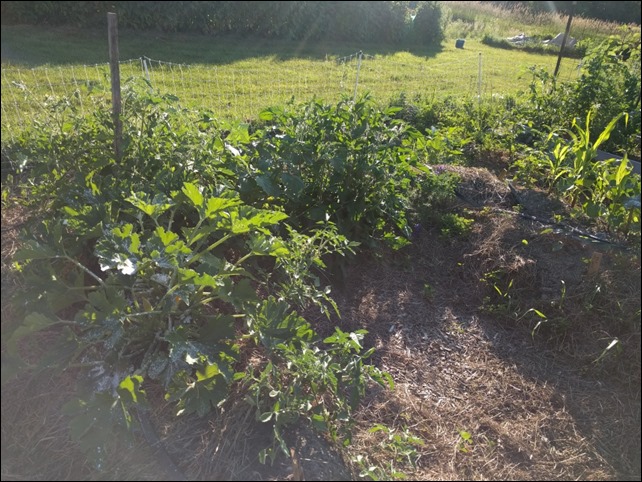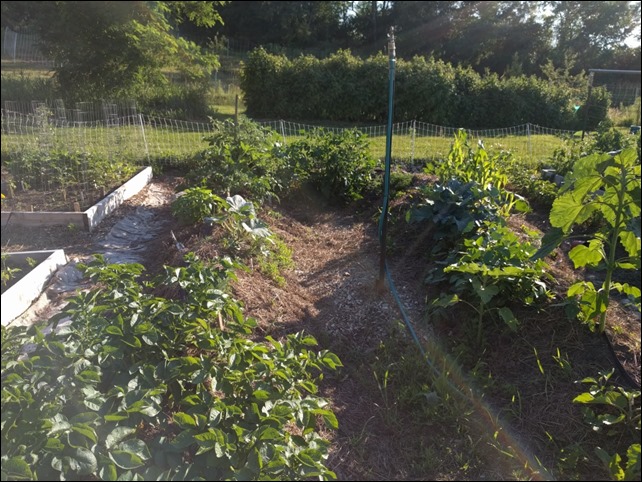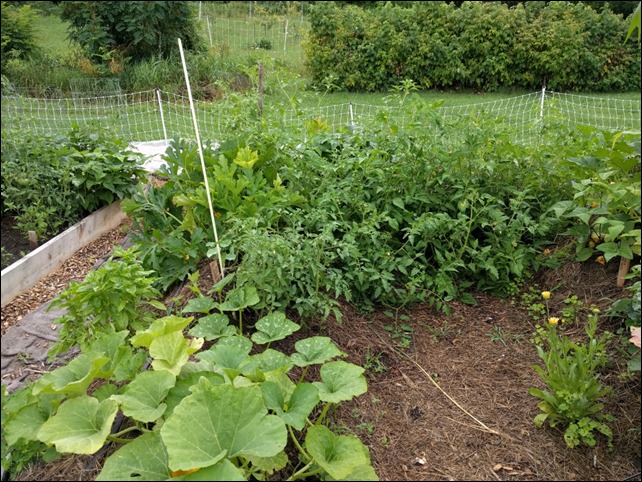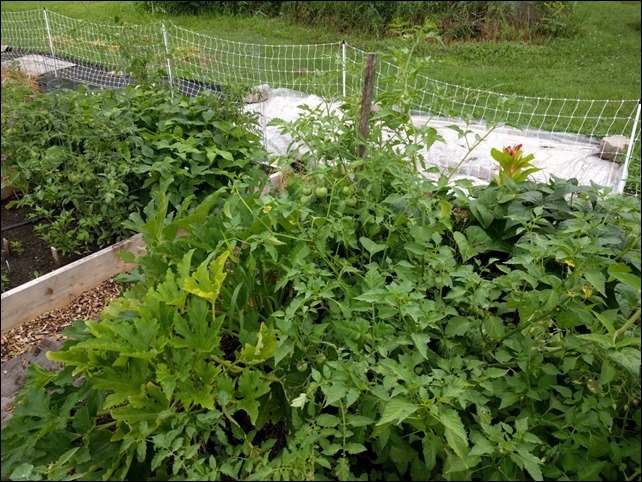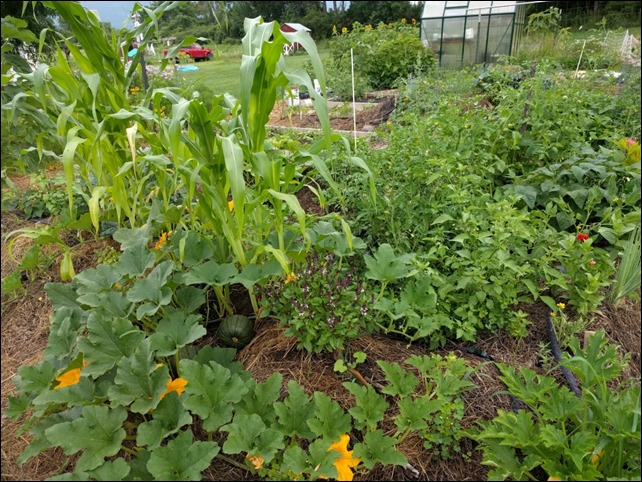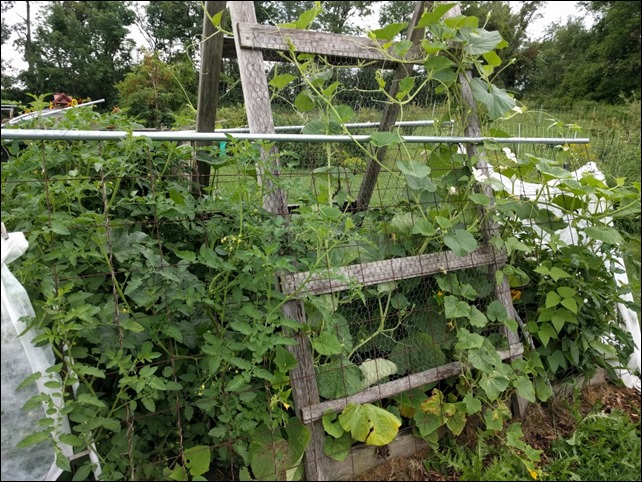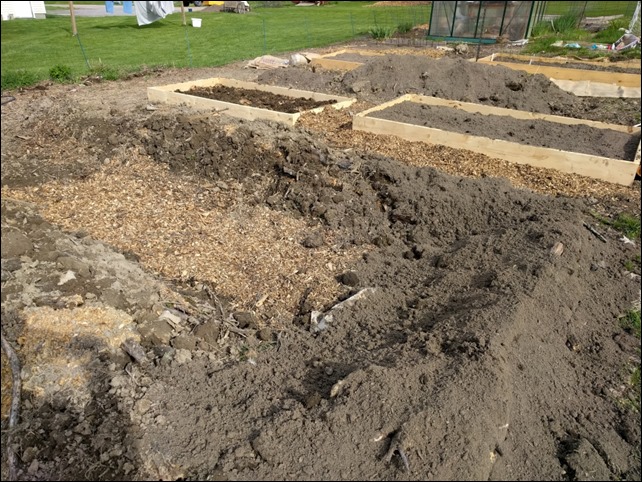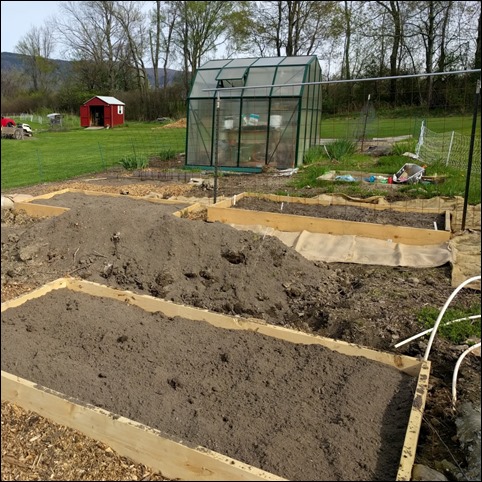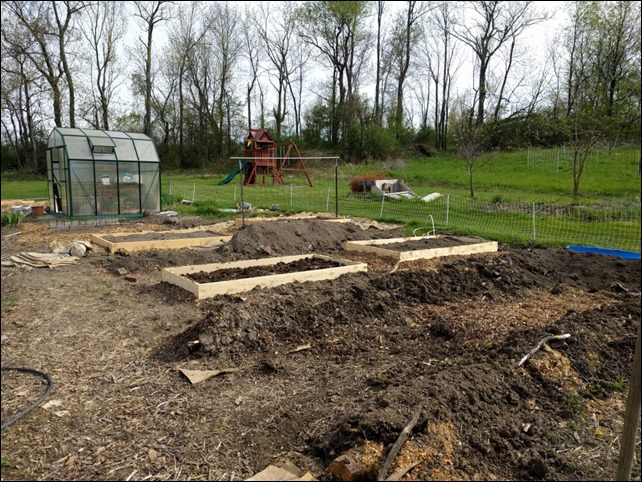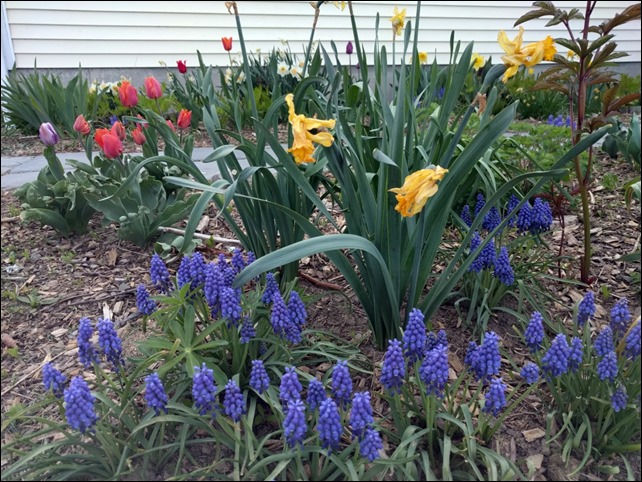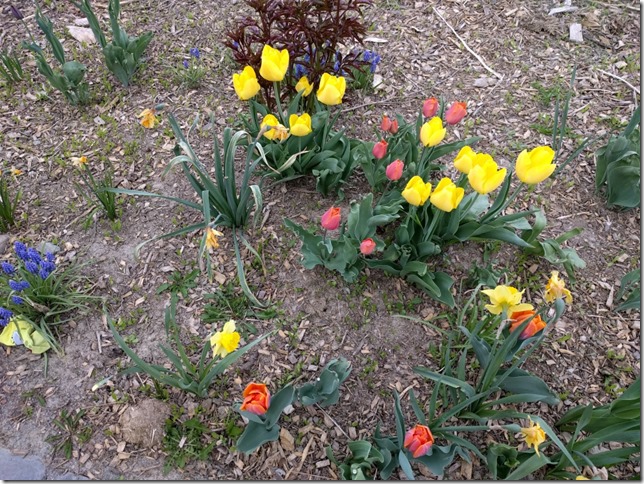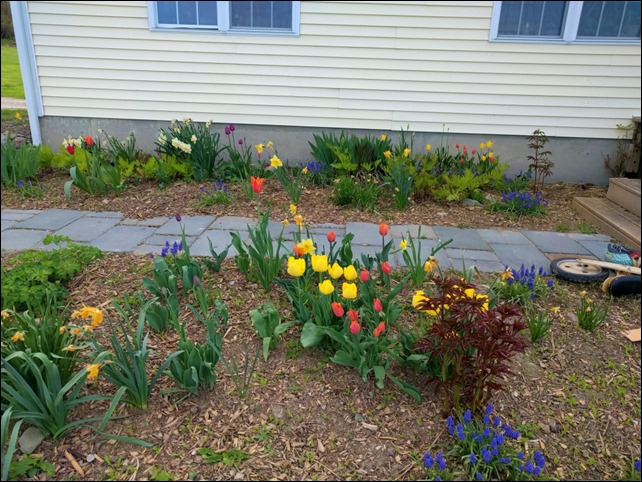Well, just a note to say I haven’t disappeared. I had a very busy 2019 with work that involved more travel than usual. As a result, I barely had time to keep up with the garden, much less blog. Still had a pretty good year as we continue to move toward a more permaculture and less structured approach.
What that meant for this past year was more hugelcultur, which we continue to see good success with. We’ll probably add some more mounds this year. Also additional raised beds. At this point, we are doing very little traditional row gardening at all.
The other thing I started working on last year was basically putting hardscape around the beds and edges of the garden. Not fully done yet, but got a good start going. I didn’t want to do this for a long time as it involves basically giving up on any exposed soil that we don’t have things planted in. However, the reality is we spend way too much time weeding garden paths, the edges of the garden where the lawn encroaches and other areas mainly used for plant access and not for actually growing anything. That’s not the part of gardening I enjoy. I would rather spend time weeding just around actual plants, harvesting, amending the soil and so on. Practically, what I mean by hardscape is landscape fabric/weed barrier covered with stone. This has the added advantage of looking nice, keeping surrounding lawn from moving in and also may act as a heat sink to keep the overall garden micro-climate a bit warmer. Not sure on that last one, but seems reasonable.
I also finally started working on a dry stone wall last year and will continue this spring. I took a class a few years ago, so I know the basics. Don’t have much practical experience though, so I have a more experienced stone mason helping out. It’s been slow, but rewarding. The first wall is running along the back of our rear garden. Pictures to come as we start working on it again. We should have the first run of about 25 feet done this spring. It’s fairly short, about 30-36 inches tall. Looking very cool already.
Last weekend I did my first round of seed starting, so the 2020 growing year has begun. Hope to provide more updates this year than last.

